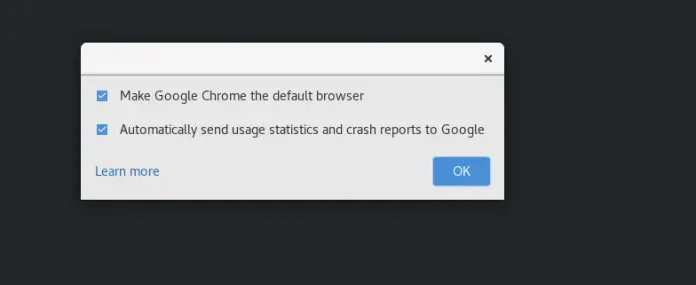Given a list of tuples, the task is to remove all those tuples which do not contain any character value.
Example:
Input: [(', ', 12), ('...', 55),
('-Geek', 115), ('Geeksfor', 115),]
Output: [('-Geek', 115), ('Geeksfor', 115)]
Method #1 : Using list comprehension
Python3
# Python code to remove all those # elements from list of tuple# which does not contains any alphabet.# List initializationList = [(', ', 12), ('Paras', 5), ('jain.', 11), ('...', 55), ('-Geek', 115), ('Geeksfor', 115), (':', 63), ('Data', 3), ('-', 15), ('Structure', 32), ('Algo', 80),]# Using list comprehension out = [(a, b) for a, b in List if any(c.isalpha() for c in a)]# Printing outputprint(out) |
[('Paras', 5), ('jain.', 11), ('-Geek', 115), ('Geeksfor', 115), ('Data', 3), ('Structure', 32), ('Algo', 80)]
Time complexity: O(n), where n is the length of the List.
Auxiliary space: O(m), where m is the number of tuples that have at least one alphabet.
Method #2: Using Regex
Python3
# Python code to remove all those # elements from list of tuple# which does not contains any alphabet.# List initializationList = [(', ', 12), ('Paras', 5), ('jain.', 11), ('...', 55), ('-Geek', 115), ('Geeksfor', 115), (':', 63), ('Data', 3), ('-', 15), ('Structure', 32), ('Algo', 80),]# Importingimport re# Using regexout = [t for t in List if re.search(r'\w', t[0])]# Printing outputprint(out) |
[('Paras', 5), ('jain.', 11), ('-Geek', 115), ('Geeksfor', 115), ('Data', 3), ('Structure', 32), ('Algo', 80)]
Method 3: Using Filter and lambda
Python3
# Python code to remove all those # elements from list of tuple# which does not contains any alphabet.# List initializationList = [(', ', 12), ('Paras', 5), ('jain.', 11), ('...', 55), ('-Geek', 115), ('Geeksfor', 115), (':', 63), ('Data', 3), ('-', 15), ('Structure', 32), ('Algo', 80),]# Using filterout = filter(lambda x:any(c.isalpha() for c in x[0]), List)# Converting in listout = list(out)# Printing outputprint(out) |
[('Paras', 5), ('jain.', 11), ('-Geek', 115), ('Geeksfor', 115), ('Data', 3), ('Structure', 32), ('Algo', 80)]
Method 4: Using recursive function.
Python3
# Python code to remove all those# elements from list of tuple# which does not contains any alphabet.#using recursive functiondef filter_list(tuples, filtered): if not tuples: return filtered if any(c.isalpha() for c in tuples[0][0]): filtered.append(tuples[0]) return filter_list(tuples[1:], filtered)# List initializationList = [(', ', 12), ('Paras', 5), ('jain.', 11), ('...', 55), ('-Geek', 115), ('Geeksfor', 115), (':', 63), ('Data', 3), ('-', 15), ('Structure', 32), ('Algo', 80),]# Using list comprehensionout = filter_list(List, [])# Printing outputprint(out)#this code contributed by tvsk |
[('Paras', 5), ('jain.', 11), ('-Geek', 115), ('Geeksfor', 115), ('Data', 3), ('Structure', 32), ('Algo', 80)]
Time Complexity: O(n)
Auxiliary Space:O(n)
METHOD 5: Using for loop
Approach/Intuition:
The Approach uses a for loop to iterate over each tuple in the given list of tuples. For each tuple, it checks the length of the first element (i.e., the string), and if it is greater than zero, the tuple is appended to a new list. Finally, the new list is printed as the output.
Steps that were to follow the above approach:
- Take the input list of tuples from the user.
- Create an empty list to store the tuples that contain characters.
- Iterate over each tuple in the input list using a for loop, and for each tuple:
- Check if the tuple contains any character by checking the length of the first element (i.e., the string).
- .If the length is greater than zero, append the tuple to the new list.
- Print the new list as the output.
Below is the code to implement the above steps:
Python3
input_list = [('-Geek', 115), ('Geeksfor', 115)]output_list = []for tup in input_list: if len(tup[0]) > 0: output_list.append(tup)print(output_list) |
[('-Geek', 115), ('Geeksfor', 115)]
The time complexity of the program is O(n), where n is the length of the input list.
The space complexity of the program is O(m), where m is the length of the output list. This is because the program creates a new list to store the tuples that contain characters, and the size of this list depends on the number of tuples that pass the condition.




